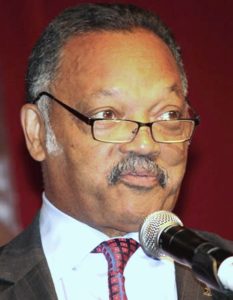

What obligations do we owe one to another as Americans? What does patriotism and citizenship mean in practice?
Hurricane Maria’s devastation of Puerto Rico has posed these questions. Americans should be dissatisfied with the way our federal government has responded.
The island has been utterly savaged by the worst hurricane in memory. Weeks after the tragedy, parts of Puerto Rico still have no water. The electricity grid is utterly destroyed. Fuel is short. The death toll, currently at 38, is likely to rise further. The danger of epidemics sweeping through families weakened by hunger and exposure is stark.
Even before the hurricane hit, Puerto Rico was literally bankrupt. Its efforts to declare bankruptcy and to renegotiate its unpayable debts were fiercely contested. Wall Street bankers were enforcing a harsh austerity on the island. One of the reasons the island was so vulnerable was its inability to modernize its energy and water systems.
Puerto Rico is an American territory; its people are American citizens. Like those living in New Orleans in the wake of Katrina or Houston in the wake of Harvey, they can abandon their homes, move to another part of the country and start over. In Houston, in Florida and in New Jersey, the federal government moved in to help with emergency assistance and to spur rebuilding of homes and infrastructure. In New Orleans after Katrina, the botched federal response became a national scandal for the Bush administration.
Puerto Rico suffered worse devastation, and it impacted more people. As the hurricane approached, it was impossible to evacuate more than a handful of the 3.4 million people from the island. Getting aid to the Americans there, caring for the wounded, providing food and water, and beginning the process of rebuilding pose far greater challenges than similar responses to other disasters.
The Trump administration’s response to this challenge has been, in a word, disgraceful. President Trump himself was absent without leave for a week; he was more focused on tweeting about the NFL from his golf club. He publicly scorned the mayor of San Juan for doing her job: pleading for more assistance for her people in peril. He slurred Puerto Ricans for supposedly wanting “everything to be done for them.”
When he finally visited the disaster last week, he seemed intent on ignoring reality while boasting about the federal response. He claimed Puerto Rico hadn’t experienced a “real catastrophe” like Hurricane Katrina, and bizarrely praised the official death toll (at the time, 16) as something Puerto Ricans “can be very proud of.”
Trump also told disaster survivors that “you don’t need” the flashlights he was handing to them, apparently ignorant of the fact that 93 percent of the island remained without power. Even as he touted a “tax reform” plan that would gift $5 trillion dollars in tax breaks to the rich and corporations over the next decade, he complained to the American citizens in Puerto Rico that they had “thrown our budget a little bit out of whack.”
At the same time, Trump praised his administration’s response as “unbelievable” and “incredible.” His advisers called it a “good news story.”
This isn’t a game. The lives of American citizens have and will be lost because of the belated and inadequate response.
How should American citizens be treated in a crisis of this magnitude? Surely, mobilization to provide disaster relief should be immediate and sufficient in scale to deal with the emergency. Then the U.S. should invest in rebuilding the core public infrastructure of Puerto Rico — the electric and water systems, the roads and bridges. This would not only make the island more resilient for the next crisis; it would also provide immediate jobs and help with the economic recovery.
Puerto Rico bears a staggering and unpayable $74 billion in debt. During his trip to the island, Trump remarked cryptically that “we’re going to have to wipe that out.” Wall Street went nuts, and Treasury Secretary Steven Mnuchin quickly denied the president had meant what he said.
Trump, who has bragged that he is the “king of debt,” could use his experience with bankruptcy to negotiate wholesale debt relief for Puerto Rico. The Wall Street bankers who made improvident loans should refinance them for pennies on the dollar. That would give the island’s residents breathing room to begin to recover. If he chose to lead, Trump could push through a major program of aid — a Trump Plan for Puerto Rico modeled on the Marshall Plan for Europe after World War II — that would rebuild the island and insure jobs and growth for its residents.
The cost would be far less than the hundreds of billions in tax breaks Trump has proposed for U.S. corporations that have booked profits abroad to avoid paying federal taxes. Why not benefit citizens who are victims of disaster through no fault of their own rather than corporate tax evaders?
Puerto Ricans are Americans. We should not fail them in a desperate time of need.

Be the first to comment